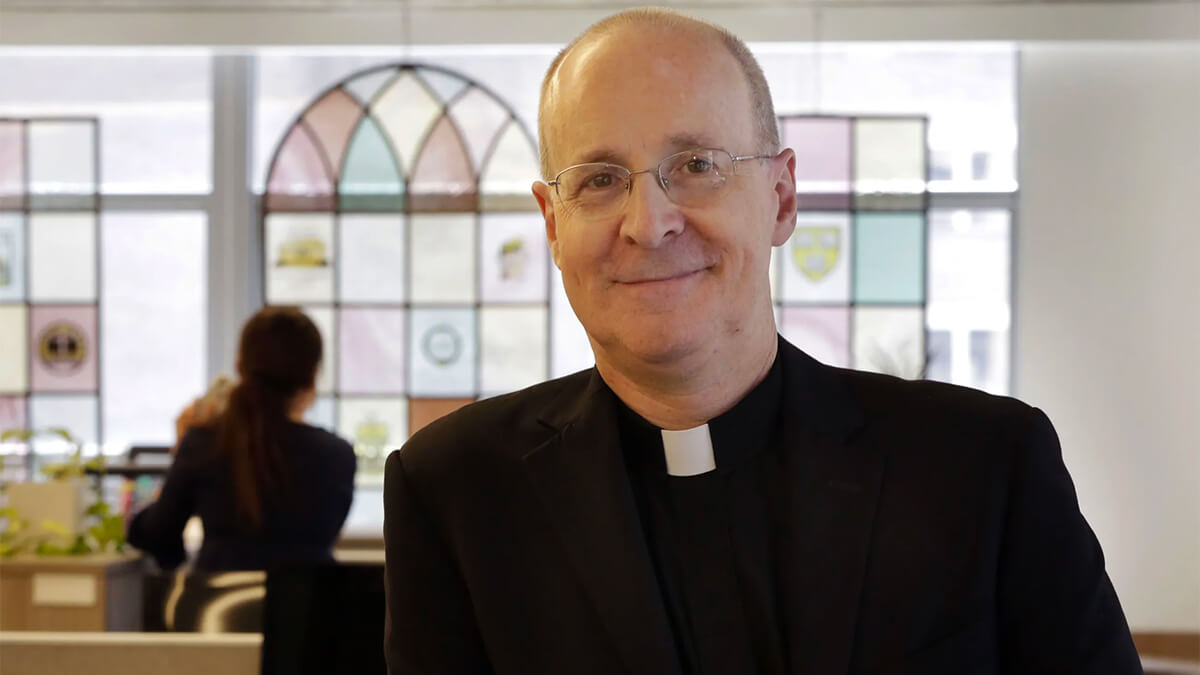
Our culture increasingly depends on advanced technology, but we’ll always need people on hand to make ethical decisions and other judgment calls. That’s one of the themes of my book, “Human Work in the Age of Smart Machines,” and it’s something that came up several times when I talked with James Martin, S.J., recently.
At a time when machines are doing an increasing amount of repetitive tasks in our work lives, we must have people who can make compassionate, human decisions–something machines are incapable of.
In a recent video conversation, Father Martin and I talked about how we can make human work—the work that only people can do—a priority. The Jesuit priest, whose bestselling books include “Learning to Pray” and “The Jesuit Guide to (Almost) Everything,” comes at the question from a novel vantage point. He worked on an assembly line and did physical labor as a young man, graduated from the Wharton School of the University of Pennsylvania with a business degree and worked at General Electric for six years before entering the priesthood.
“We have to develop habits that become virtue,” he told me. “It’s natural to be greedy and focused on your own success, and we have to work against that. Work is more than a way to earn a living. It’s a way to participate in God’s creation.”
Father Martin said he believes that “capitalism is the most efficient distributor of goods and services, but it does leave people behind in a way that can be very callous. Individuals need to be cared for.” He also noted that while workers need to be flexible and adaptable, he remains confident that we’ll always have the need for human morality and humans who can make ethical choices.
“There is still going to be the need for—thank God—human interaction,” he said. “And how do we treat people is still a valid question, even in the age of smart machines.”
We agreed that the point of work, aside from providing us with the means to live, is to give our lives meaning. Work gives us dignity and purpose. It allows us to be more human.
“We are co-creators with God and participating in God’s creative work,” he said, noting that in many vocations–farmer, doctor, midwife, even in a startup venture—we’re participating. The difficulty comes, he said, when the job is at cross-purposes with our beliefs—for example, if one were working for a corporation that is spoiling the environment or operating unethically.
Father Martin said that during his years in corporate America, he saw callous and cruel behavior. He also was bored and unfulfilled in that life until he read Thomas Merton, the Trappist monk whose words inspired him to pursue the priesthood.
Education beyond high school is critical for success in navigating the work of the future, and we must have a higher-ed system that works for all. We agreed in our chat that those who develop their human traits and capabilities—the knowledge, skills, and abilities to be empathetic and ethical–will earn more, enjoy greater social mobility, and be able to continue to grow throughout their lives.
Earning is a part of that life cycle, but we are not fulfilled if our lives are only about money, Father Martin says. Ultimately, a person’s job is not who they are.
“We are human beings,” he said, “not human doings.”
Jamie Merisotis is president and CEO of Lumina Foundation, an independent private foundation in Indianapolis committed to making opportunities for learning beyond high school available to all. He also is author of “Human Work in the Age of Smart Machines.”
